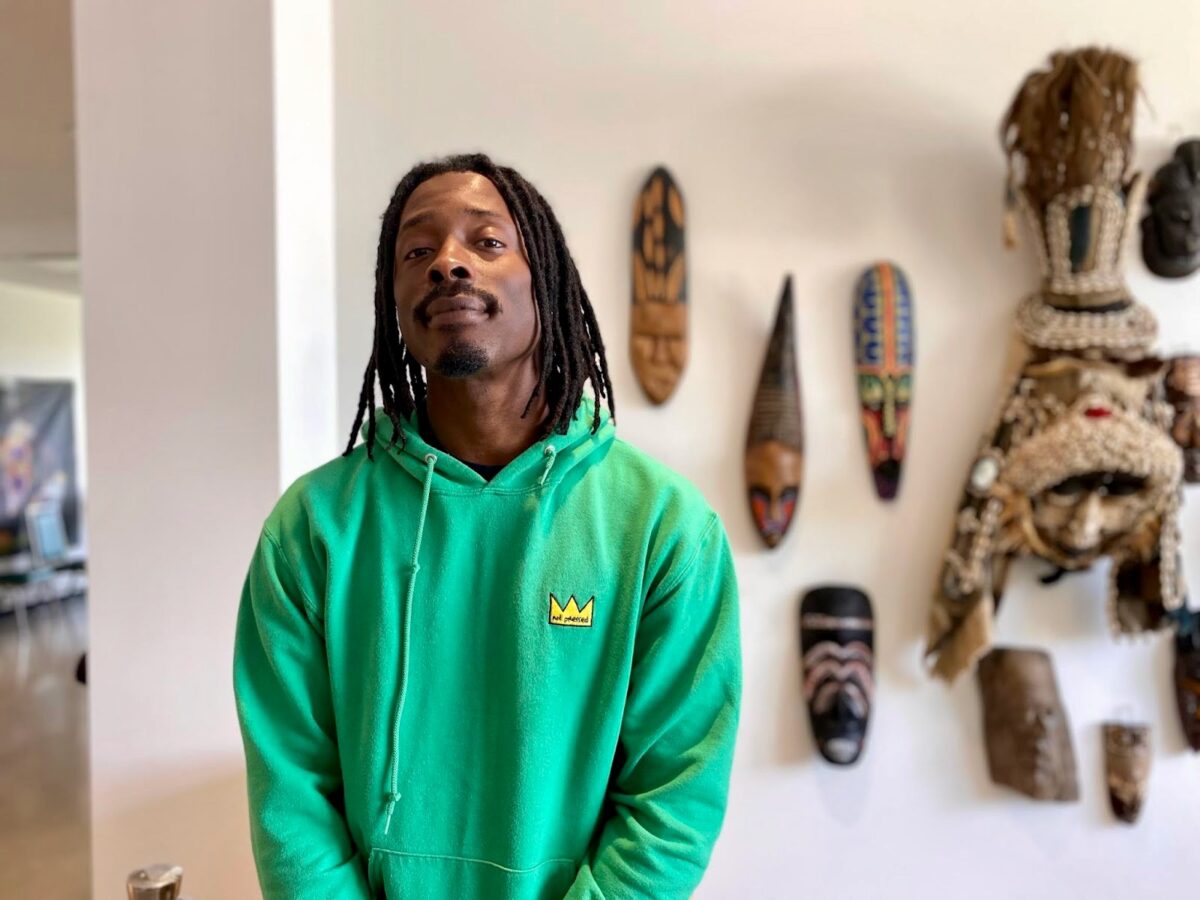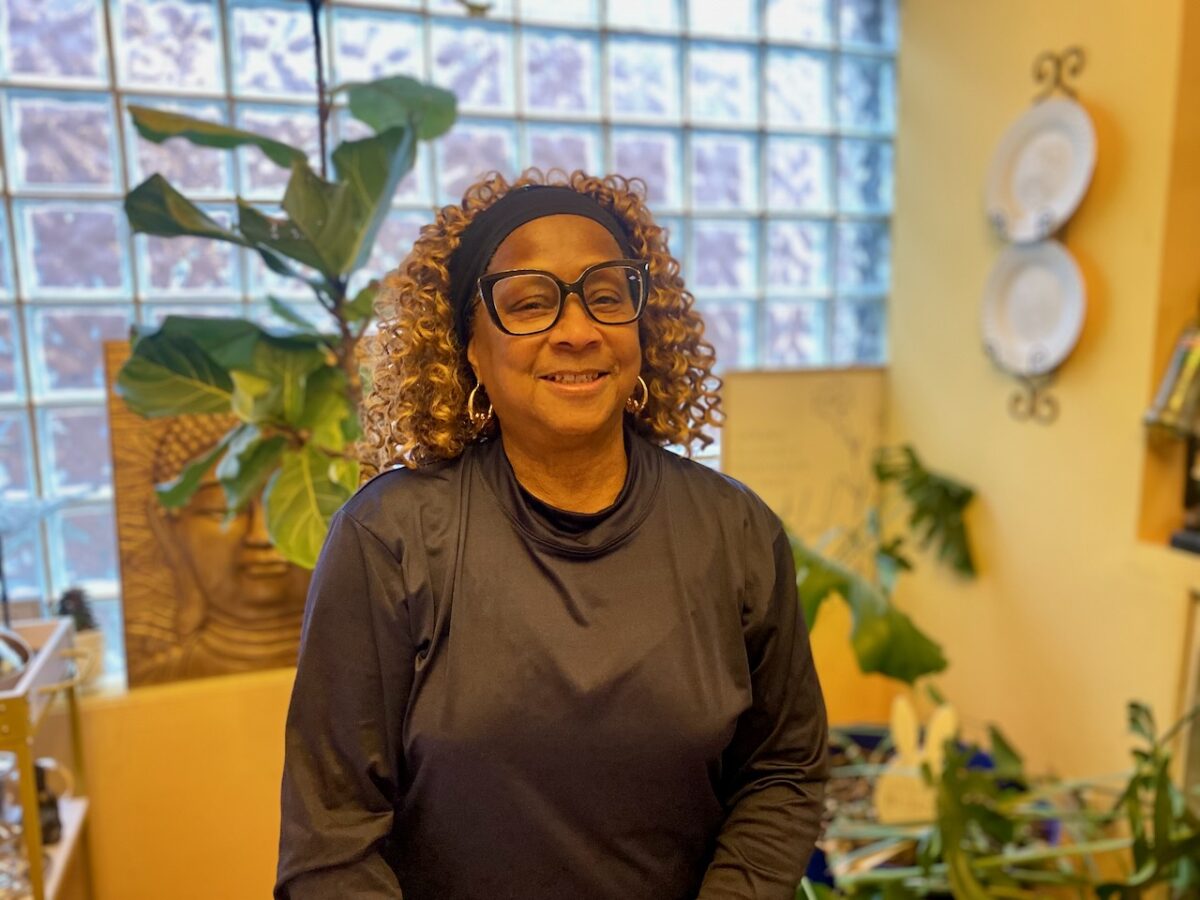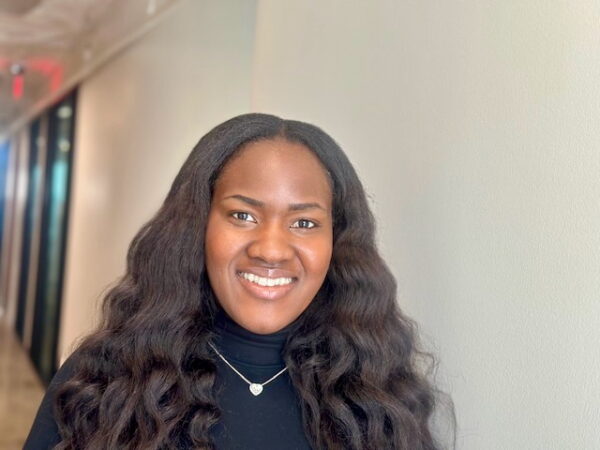Overview:
-Jason Ford leads operations at Detroit Black Community Food Sovereignty Network.
-DBCFSN established the Detroit People's Food Co-op to provide fresh, local foods to the surrounding community.
-"Being able to control your food is one of the biggest freedoms you can have," Ford tells Planet Detroit.
This story is published as part of Planet Detroit’s 2025 Spring Neighborhood Reporting Lab, supported by The Kresge Foundation, to train community-based writers in profile writing. This year’s participants will focus on highlighting grassroots leaders driving positive change in metro Detroit.
In the calm after the lunch rush, Jason Ford walks the floor of the Detroit People’s Food Co-op. As the director of operations for the Detroit Black Community Food Sovereignty Network, the nonprofit that built the co-op, part of his job is to ensure the facility runs smoothly and the people who work at the co-op feel supported.
Ford connected with the leadership at DBCFSN after working as part of the coordination team for the co-op’s grand opening one year ago. Noting their similar mission of self-reliance, and justice, he knew this would be a fit for him. Ford is driven to uplift the community and support its self-determination, he said.
A Detroit resident since 2013, Ford joined the DBCFSN in 2024, but his devotion to uplifting the community began long before that.
Before he became the nonprofit’s director of operations, Ford built partnerships with local businesses and community organizations for Strategic Community Partners, and curated programs for organizations such as Andy Arts and the Charles H. Wright Museum of African American History.
DBCFSN began as a community organization dedicated to teaching Black residents about the importance of fresh food nearly 20 years ago. It has flourished into a nonprofit with multiple programs such as the Detroit Black Farmer Land Fund, the Congo Beehive Coalition and now the Detroit People’s Food Co-op, which provides local residents with fresh foods from local farms.
Food co-op’s focus: the community it serves
Managing the day-to-day operations of a nonprofit can be a large lift, but Ford says the greater mission of serving the community keeps him energized.
“I’m focused on my community,” he said.
“When you work in corporate America. It becomes about “how much money do we need? What is my check looking like? You know? You got to make sure that the work comes first. I make sure I’m doing my part,” Ford said.
Doing his part includes managing contracts and administrative matters for all components of the organization, as well as working with the vendors and farmers.
“It’s about making sure people have what they need to get their jobs done,” Ford said.
When customers enter the co-op at the corner of Woodward and Euclid, staff greets them with intention. The hellos and genuine smiles come from every employee, from the security guard to the floor staff. The blended aroma of the herbs and spices lingering in the air feels like a warm embrace, and just as the founders intended, visitors feel connected to the community.
“We have centered our [store] culture around the history and heritage of Africa,” Ford said.
“The culture is all about bringing people along, helping people, and respecting your elders.”
The Detroit People’s Food Co-op’s commitment to the needs of the community distinguishes it from most grocery stores. Products like sea moss gel from the Caribbean, Black Bottom-inspired coffee, and fresh foods are locally sourced and eliminate the need for shipping.
With over 5,000 member-owners, the co-op’s commitment is to community ownership. The members meet regularly with building operators to offer feedback on operations and store inventory.
MORE REPORTING FROM PLANET DETROIT
Is lifelong learning the key to success? This Detroit teacher says yes
Deborah Jenkins, a Detroit educator, champions collaboration between parents and teachers to secure quality education for children, while pursuing her own lifelong learning.
Trayvon Martin’s death changed everything for Aderonke Ibironke. She shares her approach to creativity, advocacy.
Aderonke Ibironke, a Detroit-born creative, leverages writing and music to advocate for social change, while serving as a policy analyst for the City of Detroit. Meet Planet Detroit’s 2025 Neighborhood Reporters in this Q&A series, written by Neighborhood Reporters.
Detroit People’s Food Co-op to open May 1
The grocery store will offer fresh produce, bulk foods, a prepared deli section with limited seating, beverages and other items commonly found at grocery stores.
‘We want generational health’
The Detroit People’s Food Co-op is the culmination of a multidecade vision and movement by the leaders of DBCFSN to provide nourishment for the people and by the people.
“Being able to control your food is one of the biggest freedoms you can have,” Ford said. “This building had to happen.”
Many Detroiters, including in the North End neighborhood where the co-op is located, historically lacked access to fresh food markets and instead were limited to weekend farmer markets, grocery stores outside of city limits, or processed, canned vegetables from gas stations and local liquor stores. Ford mentions how families became accustomed to diets primarily made up of processed foods.
“The biggest thing is that our communities — our moms, dads, kids — are not getting the nutrients they need,” Ford said. “We’ve gotten used to eating pizza rolls and whatever you can buy out of the freezer at the dollar store because that’s what’s available.”
The lack of access was one of the main reasons for the creation of the food co-op.
The DBCFSN also operates D-Town Farms, a farm located on the city’s west side. D-Town Farms offers multiple nutrition education programs for residents. These alone did not provide residents with access to fresh food. The establishment of the food co-op closed the gap by bringing fresh foods within reach of the people who needed them.
Ford is proud to help build the system and encourages residents to shop at the co-op and become a member.
The food co-op shows residents they can control their own health and nourishment by farming the foods they desire instead of being limited to what is or is not inside their local stores.
“We want generational health. We gotta build the systems,” Ford said. “We ought to be able to provide something where people can be involved in their own food sovereignty.”
Editor’s note: This story has been updated to clarify that Jason Ford moved to Detroit in 2013.





